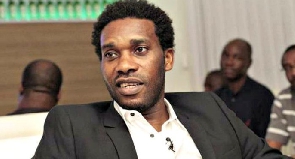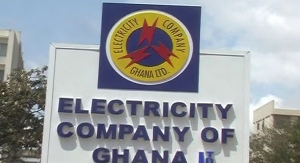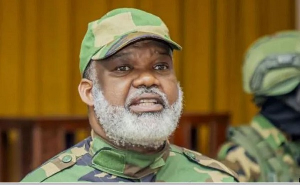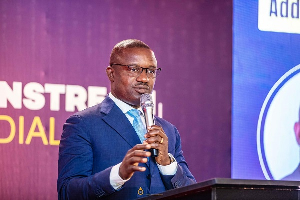The Ghanaian government has aspirations of supporting a national carrier. If this pans out, it will be the third time on the part of the government to run a national airline.
But running an airline is serious business, something that will prove rather challenging for the government given its poor track records the first two times around. In the 1960s when Ghana Airways started having problems, it manifested as flight irregularities, lateness, missing flights, stranded passengers amongst others. These were however only the symptoms of the financial rot that was occurring underneath.
Ghana Airways commenced operations in 1958, as a 60% and 40% stake partnership between the government of Ghana and a British carrier respectively. Interestingly, 1961, the year that the government bought out the British carrier, was when the first ills of the airline began to manifest. With government having 100% ownership, checks and accountability mechanisms collapsed.
One of the first signs were the two Boeing orders which were cancelled due to financing challenges. And then that same year the airline reportedly lost USD 800,000[i]. These occurred because the routing and management of the airline were so heavily politicized that very few fee-paying passengers were on a typical flight.
An anecdote is told that one time a plane which was fired up and ready for takeoff was held on the tarmac for over two hours in order to accommodate a minister and his wife who were scheduled to join the flight. These types of practices attracted penalties and incurred losses for the airline. The tipping point was perhaps in 2002 when an airplane was seized at Heathrow as a result of unpaid debts.
When all was said and done, the debt of the airline was tallied at USD 160 million[ii]. This was worsened by a ban from operating flights to the US on grounds of technical irregularities, unsafe practices and out of date license.
The inevitable collapse of the airline came around 2004. Barely a year later the national carrier was revived as the Ghana International Airlines. This was owned by the Ghanaian government (70%) and a US consortium (GIA-USA) (30%). However, due to high operational costs the airline suspended operations in 2010[iii].
Six years later, the country is once again at this juncture with lofty aspirations to fly a national carrier. It has been repeatedly emphasized that the government wants to support a wholly privately owned national airline. In the 2016 budget and policy statement, it was stated that based on a feasibility document which has been submitted and discussed by stakeholders, request for proposals were currently being prepared for the selection of a strategic investor.
It is important that the government does not directly finance this project to avoid managerial interference amongst others. But it is equally important that the government does not directly bear any financial risks related to the endeavor. This means that the government should refrain from guaranteeing credit or similar to a private company through this Public Private Partnership. It is only then that the government and ultimately taxpayers will be duly insulated from any potential financial malfeasance related to the carrier.
Therefore, in line with its plans, on June 1, there was an expression of interest by the government for an airline partner with a global distribution network. The partner will then work with the government of Ghana to establish a new national airline. Critically, the expression of interest indicated that ‘a market exists to profitably support the operation of a new national airline…’.
These market prospects are contained in a feasibility document which was prepared by PwC. The said feasibility document, unfortunately, has not been made available to the general public. PwC, when contacted for a copy of the feasibility reported, indicated the document is the propriety of their client, the Government of Ghana.
This pattern of activities does not augur well for transparency and will not convey a positive message to potential genuinely interested parties to enter into an agreement that is shrouded in exclusion and secrecy. Aside potential investors, civil society and the general public also need to access the document.
It doesn’t seem logical even to open up an expression of interest based on a document that is not available for scrutiny by all to properly gauge the stakes involved. Admittedly, the document may be available if requested through the Ministry of Transportation. But anyone who has interfaced with the public sector will attest to the numerous hoops and obstacles in the way of acquiring information.
Having said that, the 24 days (1June-24June) given for persons to submit their expression of interest is woefully inadequate because as it is, they must first acquire a copy of the feasibility report before preparing a competitive expression of interest document. All these factors notwithstanding, 24 days’ notice seems rather short for such a massive and capital intensive undertaking. Unless of course the government has targeted and handpicked some specific entities for this endeavor and simply going through the motions with this process.
Ghana is also particularly hostile for any beneficial business at the moment. Compared to travel in the East African region, the cost of operating an airline in West Africa is twice what it costs in East Africa. And within West Africa, Ghana is particularly hostile.
Fuel which is estimated to account for 35-40% of airline costs is estimated at USD 2.30 per liter in Nigeria, USD 2.30 in Benin, USD 1.94 in Cameroon and USD 3.14 per liter in Ghana[iv]. With no financial stake in this arrangement, the government will have to extend non-financial support for the PPP arrangement in order to support its profitability. This could be in the form of tax incentives for example.
However, costs of utilities, the cost of labor, and other operating costs will still be a challenge.
Unbridled support from the government to an airline may be feasible but will also come with its share of consequences. There’s a similar occurrence in the Middle East where airlines Etihad, Emirates, and Qatar who benefit from governmental support effectively run losses in order to compete with other carriers[v].
This move will drive the other airlines out of the market, thereby monopolizing a segment of the market and eroding competition. Ultimately, they may fix their prices at whatever charges due to the absence of competition or choice from the consumer. If disproportionate benefits are extended to one carrier in Ghana, they may be able to fix lower prices in the short term which will drive out the competition. But there is a threat of creating a quasi-monopoly whereby competition is eroded which could introduce poor quality of service and higher costs in the longer term.
The government has also stated that the desire for the national carrier is strategic to take advantage of trends in the market and to facilitate the agenda of creating an aviation hub in Ghana. To facilitate this agenda would require a holistic development of the aviation industry. Presently, there are about five domestic carriers in Ghana (although not all are currently operational).
These airlines might want to take advantage of the development in the industry to also mature into international carriers. However, if one carrier is singled out and given all the benefits, these carriers would be blocked out of the market and will not get a fair shot to competitively grow.
The fact is that there are many moving parts to establish a national carrier, especially in the PPP form proposed. Maybe one silver lining is the managerial interference the proposed arrangement seeks to eliminate. Research shows that former workers of Ghana airways ranked highly, government interference and poor management practices as contributing to the demise of the airline[vi].
Under this arrangement this abuse might be blocked; But what about public mismanagement? It would make sense that after establishing the airline, all government, and publicly funded travel will be transacted through this airline for nationalistic interests. But what if the airline rates are so jacked up that government ends up paying three, four, or ten times what it could get on a competitor carrier? Does the current deal protect Ghanaian tax payers from that potential tax and/or debt burden? This government, unfortunately, does not offer the best track record in procurement which makes this particular opening for abuse worrying.
Lastly, profit margins in the aviation industry are low with an outlook of 5.1% estimated for 2016 by the International Air Transport Association[vii]. But for the Africa region IATA estimates puts it at 1.6% for 2016. Meanwhile according to media reports, the feasibility report prepared by PwC puts the national airline’s profit margins at 10.1% for the first year, 10% in the second and 7.5%, 11.6% and 13.8% for the third, fourth and fifth years respectivel[viii]. Critics have described these figures as outlandish. It is crucial that the basis for this report is publicly available.
All Ghanaians deserve to view this report because for an open tender anyone could be a potential investor. Furthermore, the government based on its promises of transparency can do better. And in the interest of equal opportunity and fairness, the period for submission of expressions of interest must be extended beyond June 24.
And while these activities are ongoing, perhaps it might also be important to shift the narrative a bit and ask whether a country so deep in debt, with such unstable macroeconomic fundamentals, absolutely needs a national airline at this point in time?
Maud Martei is IMANI Africa’s Deputy Head of Research. For interviews, please contact info@imanighana.org .
Opinions of Tuesday, 28 June 2016
Columnist: IMANI







![The suspect, Daniel Tuffuor [L] and deceased Yobani Deladem Aku The suspect, Daniel Tuffuor [L] and deceased Yobani Deladem Aku](https://cdn.ghanaweb.com/imagelib/pics/404/40485450.295.jpg)











